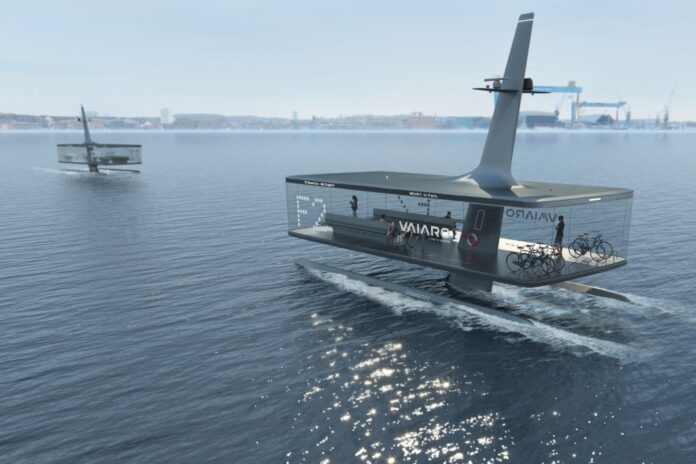Vodafone joins project to research and test 5G’s potential role in enabling autonomous passenger ferries, port logistics and sailing events on the Kiel Inner Fjord.
In Germany, Vodafone, Kiel as the state capital of Schleswig-Holstein, the Ministry of Economics, Transport, Labor, Technology and Tourism of the State of Schleswig-Holstein and the Christian-Albrechts-Universität zu Kiel have signed a declaration of intent to support a project on the Kiel Inner Fjord.
The partners want to test, among other things, whether passenger ferries (picture by Muthesius Kunsthochschule) will be able to sail at least in part autonomously, which could make their use more flexible.
Förde 5G is also part of the CAPTN Kiel – Clean Autonomous Public Transport in Kiel initiative.
Greater safety and efficiency
“If sensors and ships exchange data in real time, shipping traffic can become safer and more efficient in the future,” says Vodafone Germany’s CEO Hannes Ametsreiter.
Port logistics and sailing events should also benefit from the 5G delivered by Vodafone: Digitization is becoming important for “inland shipping 4.0”, which is reflected in the expansion of 5G expansion along the waterways.
About 180 5G antennas are already live at 64 locations along the waterways. “The shipping industry has been an important pillar for the supply of food, medicine and protective clothing in recent months.
“Germany continues to be one of the largest shipping nations in the world. In order for it to stay that way in the future, environmentally friendly and digital technologies are required. Fast networks are the basis for this,” says Ametsreiter.
In the next twelve months, Vodafone plans to activate around 1,000 additional 5G antennas along German waterways at more than 300 locations.
Kiel Inner Förde
In this project, Vodafone will deploy nine 5G antennas at three locations. “We want to make passenger traffic safer and more efficient – on the roads, in the air and on the water,” Ametsreiter continues.
“If we try out innovations at an early stage, as in the Förde 5G project, that will bring long-term benefits for the shipping industry in Germany.”
Sports fans and the local economy should also benefit from the 5G expansion along the Kiel Inner Fjord as at sporting and sailing events, 5G could provide sailors onboard and fans on the coast with live images in real time.



